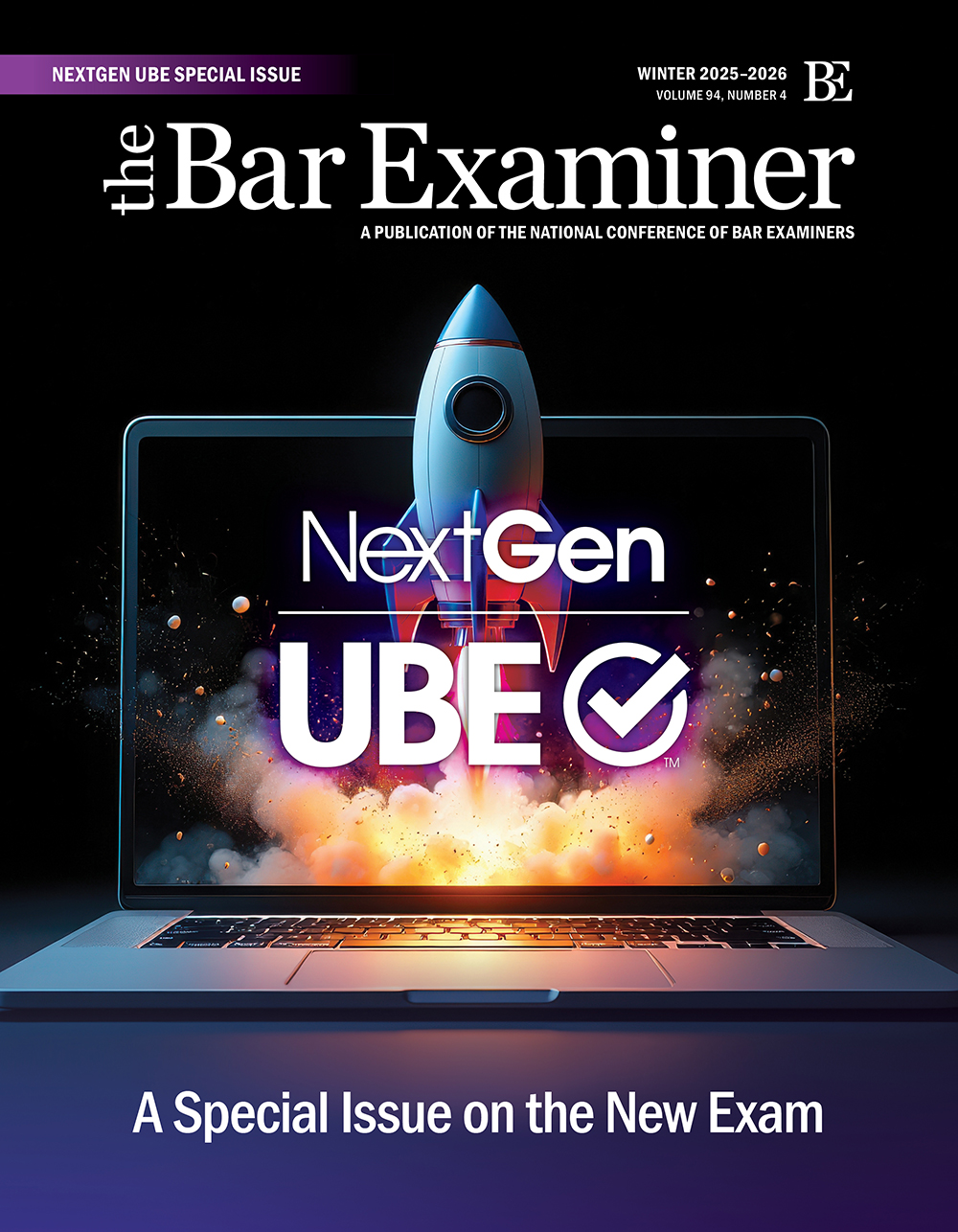This article originally appeared in The Bar Examiner print edition, Spring 2022 (Vol. 91, No. 1), pp. 1–2. By Suzanne K. Richards
 As I write this, Judge Ketanji Brown Jackson has just been confirmed as an associate justice of the US Supreme Court, the first Black woman to become a member of the Court. In speaking of her confirmation, Judge Jackson noted that this was a “moment in which all Americans can justly be proud,” for in one generation she went from living under segregation to serving on the highest court in the land.
As I write this, Judge Ketanji Brown Jackson has just been confirmed as an associate justice of the US Supreme Court, the first Black woman to become a member of the Court. In speaking of her confirmation, Judge Jackson noted that this was a “moment in which all Americans can justly be proud,” for in one generation she went from living under segregation to serving on the highest court in the land.
Everyone should celebrate moments like this, especially those within the bar admissions community. Inevitably, in our daily lives we are focused on our work responsibilities, making sure we competently accomplish them in a timely manner. But then such an historic event happens, and we are prompted to step back and think about why we do what we do.
Judge Jackson’s elevation to the Court at the pinnacle of the system that protects and enforces the rule of law in our country brings to the fore the importance of lawyers who are both highly competent and as diverse as the society they serve. It also reinforces the need for a licensing system dedicated to protecting the public. Although my reading and thinking has led me to conclude that an objective test, such as a bar examination, is preferable to subjective supervisory or portfolio assessments, my intention here is not to debate the best means for determining admission to the bar. Rather, it is to highlight the two necessarily complementary aspects to admission, the twin goals a licensing system needs to meet. There is the need to avoid barriers of any type unrelated to the legitimate criteria for admission to the legal profession. There is also the need to ensure that those granted the privilege of practicing law have demonstrated the competency required, lest harm comes to members of the public our profession is dedicated to serving.
Too often when discussing the pros and cons of the bar examination or other means for admission, commentators tend to focus almost solely on the interests of applicants to the bar. Clearly, ensuring no artificial barriers to admission exist is a legitimate and important concern. We owe applicants that. But standards of competency related to the knowledge and skills required of a lawyer are not artificial barriers. To the extent such standards reflect well-recognized testing rules applied in a nondiscriminatory manner, they are fairly and appropriately imposed on those seeking admission. They also serve to ensure the very important goal of protecting the public.
Likewise, admitting qualified applicants regardless of their race, ethnicity, gender, or other such characteristics benefits both applicants and the public at large. It is also worth remembering that the members of the public being served and in need of protection are diverse, not only racially and ethnically, but also in their ability to judge whether they are being well-served by the lawyer representing them. Thus, admission must be guided by standards that protect the public and uphold the integrity of the profession while also furthering diversity and inclusion. In short, a licensing system needs to foster competency, honesty, and integrity, and a diverse and inclusive legal community. It must serve the equally important interests of applicants, the public, and the profession itself.
So we return to why moments like Judge Jackson’s appointment to the Court should be celebrated. It did not occur merely because she is Black. To think that is to be unfair to her. It happened because she is so well-qualified educationally and by experience; because her record bespeaks a person of unquestioned integrity; and because of the need to correct the past failures of the Supreme Court and our legal profession to reflect the diverse society we are. Her elevation to our highest Court is a step forward for our legal system and the legal profession. But it is so much more. It is a clarion call to the public that we are striving, albeit perhaps too slowly, to fulfill America’s highest ideals. As Judge Jackson herself commented: “Our children are telling me that they see now more than ever that here in America anything is possible.” It reinforces our belief in the promise of America. And it brings home to each of us in the bar admissions community why we do what we do: to help create a legal profession in which, in the future, an accomplishment like Judge Jackson’s no longer has to be an historic event.
Best regards to all,
![]()
Suzanne K. Richards
Contact us to request a pdf file of the original article as it appeared in the print edition.







